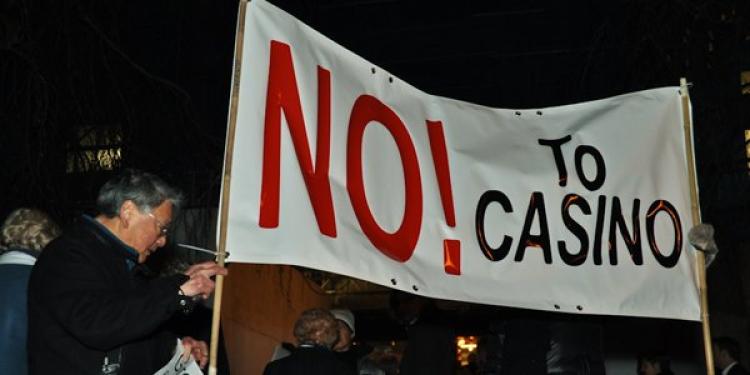Pro and Anti Casinos: Massachusetts to Decide Whether to Repeal Gambling
Posted: September 9, 2014
Updated: June 4, 2017

Two large gambling companies are fueling the campaign to save Massachusetts casinos from being shut down.
In two months, voters living in Massachusetts will decide whether to repeal casino gaming in the state. Opponents and supporters of the idea are preparing for a multimillion-dollar battle, where the pro-gambling side – called the Coalition to Protect Mass Jobs – has already raised close to $1.8 million to support its cause.
When the year’s first campaign finance reports were made public at the end of last week, no one was surprised to see the casino industry at the top of the fundraising list. The Massachusetts campaign money largely comes from just two casino companies.
On the other hand, the anti-gambling group – known as the Repeal the Casino Deal Committee – has only raised $247,000 this year, which adds to the $175,000 collected last year. And it also has a huge debt.
Pro-casino side closing in on $2 million
Earlier in July, Penn National and MGM Resorts each donated $500,000, and then Penn followed up with a $775,000 gift later in August.
Despite opposition from the Repeal the Casino Deal Committee, Penn National is moving forward with its plans to build the Plainridge Park Casino, hoping to complete the $100 million project by November. In September, the company will start receiving applications for 500 permanent jobs.
The latter is currently working on opening a slot machine parlor in Plainville, showing great confidence that its plans won’t be completely shattered by the referendum held in November. If the ballot question succeeds Penn has the most to lose, so the gambling company has every reason to support the pro-casino campaign in every way possible.
MGM is also prepared to do whatever stands in its power to make sure Massachusetts casinos remain legal, because state officials gave it the green light to build a casino in Springfield. However, the company decided to postpone construction until after voters make a decision.
Surprisingly, the Mohegan Sun hasn’t chipped in yet, although it is still waiting for approval for its Revere project. Authorities should make a decision soon, right after verifying that the project complies with American gambling laws. If Mohegan gets the green light, it will probably make a sizeable donation for the cause.
Opponents have generous donors too
While casino investors are throwing money at their campaigners, the Repeal the Casino Deal Committee has a few wealthy donors too, including prominent members of Boston’s development community.
The list of its deep-pocketed supporters includes Alan Lewis, chief executive officer of Grand Circle Travel, who gave $70,000 the cause, and former John Hancock CEO David D’Alessandro, who contributed $10,000. Philanthropist Swanee Hunt also chipped in with $15,000 last year, while John Rosenthal and Jerry Belair of Meredith Management gave $1,000 each.
Lewis is back with a donation of $65,000, Hunt has given another $25,000, and Amos Hostetter, former chief of Continental Cablevision gave $55,000. State Senator Dan Wolf, who is also CEO of Cape Air, supported the cause by donating $5,000, while Atlantic Charter Insurance chief Linda Sallop added another $17,500 on top of last year’s $5,000 donation.
Last, but not least, housing developer Robert Beal offered $7,500, Belair contributed $9,000, and Thomas Desimone of S.R. Weiner Associates donated $2,000.
Donations to cover debts
The Repeal the Casino Deal Committee seems to have a large number of supporters, but apart from these generous contributors, the group is only receiving small donations. And the list of supporters might be long, but so is the list of unpaid debts.
The group ended the year with $411,300 in liabilities, and while having debts at this point in the campaign is not unusual, the amount of money owed is very high. A large part of the debt comes from legal work, which helped the group get the repeal question on the ballot. Attorney General Martha Coakley first ruled that a repeal would be unconstitutional, but in late June the state Supreme Judicial Court decided to allow the question.
At the end of August, the repeal group had collected only $25,000 in cash, and had $411,000 in liabilities. On the other hand, casino supporters ended the month with $1.2 million in cash and just $164,000 in liabilities.
If the Repeal the Casino Deal Committee succeeds, this will mean the end of casinos, slot parlors and American poker rooms in the state of Massachusetts.












